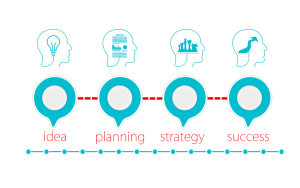Developing healthy habits for kids is a goal shared by all parents, and understanding a child’s unique strengths can be a powerful tool in this process.
The HIGH5 strengths test can help parents identify their children’s innate talents, which can be leveraged to establish healthy and manageable habits. These habits, aligned with a child’s natural strengths, empower them to take charge of their lives, make informed decisions, and achieve their goals more effectively. Simply telling your kid to take care of their health isn’t enough; instead, using a strengths-based approach can make the journey towards healthy habits more engaging and sustainable.
Instead, parents should try to explain the importance of healthy habits to help them internalize proper behaviors for their physical and mental well-being.
But why are healthy habits important for kids at all?
In this article, we’ll review the top 10 healthy habits for your kids, discuss why it’s important to teach them healthy habits, and provide some tips for convincing your children to switch to a healthy lifestyle.
Top 10 Healthy Habits to Teach Your Kids
While there are countless habits kids need to learn for a healthy lifestyle, some are vital for their well-being, such as washing hands, eating well-balanced food, or maintaining a consistent sleep schedule. However, the effectiveness of teaching these habits can be significantly enhanced by understanding your child’s unique strengths.
The HIGH5 strengths test can provide valuable insights into your child’s natural talents and inclinations. By aligning healthy habits with these strengths, parents can make the learning process more engaging and sustainable. For instance, a child with strong analytical skills might be more receptive to understanding the science behind good hygiene, while a child with high creativity might enjoy inventing fun ways to incorporate more vegetables into their diet.
Let’s explore the top 10 most important healthy habits every parent should teach their kids, keeping in mind how each child’s unique strengths can be leveraged in this process.
Wash Your Hands
Washing your hands is indeed the number one healthy habit, not only for kids but for everyone.
According to the World Health Organization (WHO), thousands of people die every day as a result of infections, and hands are the main pathways for germ transmission.
Considering this, developing proper hand hygiene habits is among the WHO recommendations to prevent viruses.
As VeryWell Family proves, the first thing parents should do in order to teach their children the importance of handwashing is to explain its significance.
Just try to explain how washing your hands with soap and water reduces bacteria much more effectively than water alone.
Make half your meals fruits and vegetables
Kids nowadays enjoy eating junk food like burgers or fries, which is very harmful to their health.
All the studies prove that fast food badly affects our bodies; it raises blood pressure, leaves you bloated and contributes to digestive problems.
On the other hand, kids that eat fruit and vegetables receive all the needed vitamins, nutrients, and fiber.
Try to serve balanced meals and make half of your children’s meals fruit and vegetables to avoid digestive problems and promote their healthy lifestyles.
For this, you should always take a look at the food labels and choose natural food without any artificial products.
And remember, although most kids hate eating fruit and vegetables, there are tons of tasty recipes to get your kids to love healthy food.
Reduce added sugars
Sugary foods are very dangerous for our health. It’s especially true when it comes to children because they’re still in the process of growing up.
Excessive use of sweet products might lead to weight gain, blood sugar problems, and an increased risk of heart disease.
However, kids adore sweets, and it’s hard to convince them to refuse to eat chocolates, ice cream, and all the sugary treats they enjoy.
Unfortunately, added sugar is linked with childhood obesity and chronic diseases. As a result, you should explain nutrition rules to your child and try to keep added sugar levels between 0-5%.
Keep in mind that reducing added sugar doesn’t mean completely excluding sweet products from your children’s diet. Surprisingly, there are a lot of healthy, low-sugar snack ideas you can prepare for your children.
Vary proteins
Every child needs to develop a routine consisting of healthy foods such as vegetables, whole fruits, whole-grain foods, or limited-fat dairy products.
A variety of proteins is another integral part of a healthy diet as it contains amino acids that build our muscles and bones. Therefore, proteins are an important source of energy in general.
In order to make your children love proteins, you should consider varying proteins and introducing different types of protein foods into their diets, such as nuts, seeds, eggs, and even soy products.
Practice good oral hygiene
Brushing teeth at least twice a day is a part of every adult’s life. Unlike adults, kids often refuse to spend their time practicing oral hygiene.
However, good oral hygiene is vital not only for beauty but to prevent tooth decay, gum diseases, and cavities. That’s why you need to explain the importance of oral hygiene to your kids.
At first, they might seem resistant, but if you help them in the process and make it more likable by using child toothpaste, you’ll likely convert them to brushing their teeth into a habit.
Once your child’s teeth fit closer together, you should also start using dental floss. Don’t forget to see the dentist regularly and explain to your kid that the dentist will help them stay healthy and beautiful.
Prioritize sleep
Sleep is an integral part of a healthy lifestyle. Even though the amount of sleep a kid needs depends on age and individual development, prioritizing sleep is indeed one of the healthiest habits for kids.
As studies show, kids who regularly get an adequate amount of sleep have improved cognitive skills and better mental and physical health.
On the other hand, not getting enough sleep often leads to mental health disorders such as depression, as well as some physiological problems.
Usually, depending on age, kids need about 9–16 hours of proper sleep per night.
Unlike them, for adults, it’s recommended to sleep anywhere between 6 and 8 hours a night.
Engage in physical activities
Developing the habit of engaging in physical activities is crucial for kids. The reason is that physical activity reduces the risk of developing cardiovascular diseases and helps us stay in shape.
Besides, regular exercise has long-term positive effects on our mental health too.
Although it’s hard to make the children take part in physical exercise, you can encourage them to participate in enjoyable activities such as swimming, hiking, or just playing outdoors.
This will help them have a better quality of sleep and develop stronger and healthier bodies. Moreover, regular physical activities will improve your children’s attention and help them keep focus at school.
Read with your child every day
Reading books aloud to your children is another important healthy habit. As psychologists believe, parents can start reading to their children as early as birth in order to stimulate their imagination.
Reading fiction books aloud helps children to expand their understanding of the world and develop language skills, which are important for getting their cognitive skills prepared for school.
As a result, they become more literate and develop proper social-emotional skills for effective functioning.
Moreover, research proves that parents shouldn’t stop reading to their kids even when they learn to read by themselves in order to help them develop a positive attitude toward reading.
Limit screen time
Spending time in front of a screen has become part of everyone’s daily routine in the modern world. Kids are no exception.
However, computers, tablets, and mobile phones have negative effects on the well-being of children and lead to sleep problems, anxiety, obesity, and other health issues. That’s why kids in particular have to limit their screen time.
So, every single time you notice your kid in front of the screen, try to recommend an alternative activity, like playing outside or reading.
Set limits on screen time for your children and enhance other types of daily activities instead.
Keep it positive
Maintaining a positive attitude towards life is a key factor in psychological and subjective well-being. This positivity can be significantly bolstered by understanding and appreciating one’s unique strengths.
The HIGH5 strengths test can help both parents and children identify and celebrate the child’s natural talents. By focusing on these strengths, parents can foster a positive self-image in their children, making them more resilient during challenging times. This strengths-based approach shifts the focus from what children might struggle with to what they naturally excel at, promoting a growth mindset and boosting confidence.
Instead of pointing out areas where your child may not excel, use the insights from their strengths assessment to highlight their achievements and celebrate their successes. This positive reinforcement, grounded in a deep understanding of their individual strengths, can help children develop a more optimistic outlook on life and their own capabilities.
Pro Tip From HIGH5
Leverage your child’s strengths to make healthy habits stick. If your HIGH5 test reveals your child has a strength in ‘Storyteller’, use narratives to explain the importance of each habit. For a child strong in ‘Problem Solver’, present healthy living as a series of exciting challenges to overcome.
Why is Critically Important to Teach Your Kids Healthy Habits for Well-being?
Teaching children healthy habits is critically important not only to prevent future health problems like heart disease, cancer, or diabetes but also to promote optimal functioning and resilience. However, the effectiveness of this teaching can be significantly enhanced by understanding and leveraging a child’s unique strengths.
The HIGH5 strengths test can provide valuable insights into your child’s natural talents and inclinations. By aligning healthy habits with these strengths, parents can make the learning process more engaging and sustainable. For instance, a child with a strength in ‘Achiever’ might be motivated by setting and reaching health-related goals, while a child strong in ‘Teamwork’ might thrive in group physical activities.
Helping your children understand the necessity of healthy habits, such as regular physical activity or a balanced diet, while they’re young builds a foundation for lifelong well-being. When these habits are introduced in ways that resonate with a child’s individual strengths, they’re more likely to stick. The HIGH5 approach can transform the sometimes challenging task of instilling healthy habits into an opportunity for children to express and develop their unique strengths.
Besides, studies show that teaching kids healthy habits contributes to their path to psychological well-being. In adults aged 45–72, studies found a significant link between a healthy lifestyle and psychological well-being.
The same applies to children. Explaining the importance of a healthy lifestyle during childhood increases the chances of maintaining healthy habits through adulthood too, which results in a better quality of life.
Pro Tip From HIGH5
Create a strengths-based reward system for healthy habits. Use the HIGH5 test results to tailor rewards that align with your child’s top strengths. For instance, a child strong in ‘Empathy’ might be motivated by the opportunity to help others adopt healthy habits too.
7 Examples of Unhealthy Habits for Kids
- Lack of sleep
- Poor diet
- Excessive screen time
- Dehydration
- Biting nails
- Uncontrolled anger
- Negative attitude
Lack Of Sleep
Children often refuse to go to bed on time. However, sleep deprivation leads to behavioral problems and can cause academic issues as well. Going to bed on time and sleeping enough is crucial for kids to develop proper cognitive skills and avoid mental health problems.
Poor Diet
Kids who have unhealthy diets and eat a lot of added sugar are more likely to develop long-term health problems in later life.
Eating foods that are high in fat or contain a lot of sugar and salt increases the risk of blood pressure and developing cardiovascular diseases. Besides, poor diets often lead to anxiety, depression, and other mental health issues.
Excessive Screen Time
Nowadays, just like adults, children also use smartphones, tablets, laptops, or watch television excessively. Some parents even use the strategy of offering a smartphone to calm down their kids or entertain them.
However, keeping their children busy with a screen is the worst thing a parent could possibly do because spending too much time in front of a screen damages their eyes and results in concentration problems.
Dehydration
Water helps the body to keep a normal temperature, lubricates the joints, and protects sensitive tissues. Dehydration, on the other hand, might lead to some complications such as headaches or dizziness. Therefore, parents should try to teach their kids to drink enough water throughout the day.
Biting Nails
Nail-biting is very common among children. Usually, kids start biting their nails when they are slim and, eventually, end up developing unhealthy habits.
That’s why the habit of biting nails should be corrected at the right time. Try to observe your kids’ nail-biting habits, identify the reason, and explain why it’s so bad for their health.
Uncontrolled Anger
Children often reveal uncontrolled anger when they don’t get what they want. Often, the anger fades away as the children grow up, but sometimes it can turn into behavior disorders. Therefore, parents should start working on this problem as early as possible.
Negative Attitude
Having an overall negative mindset is also a problem in children. Some kids tend to criticize themselves after failures. These negative thinking patterns might result in emotional issues or low self-esteem.
Try to change your kids’ negative mindsets and replace them with positive thinking in order to avoid further mental health problems.
Pro Tip From HIGH5
Address unhealthy habits by redirecting energy towards strength-based activities. If the HIGH5 test shows your child is strong in ‘Creativity’, channel potential screen time into creative projects. For a child strong in ‘Strategist’, turn healthy eating into a game of planning balanced meals.
Bonus Tip For Kids Healthy Habit: Secrets to Get Your Kids to Love Veggies
Although most parents realize that eating vegetables during childhood is an integral part of having a healthy lifestyle, when it comes to kids, it’s not easy to get them to love veggies.
In order to convince them to eat vegetables, you should keep in mind that a kid learns about food choices from you. Therefore, if your kid sees you enjoying eating veggies yourself, chances are high that they will start doing the same.
Another great strategy is rewarding your kid with vegetables after they perform desirable behaviors.
If you praise them every time they eat veggies and give them chocolate, for example, chances are high they will develop the habit of eating vegetables to get the reward.
Keep in mind that, according to behavioral psychology, punishing doesn’t work the same way. So, instead of punishing your kid for not eating vegetables, reward them for doing so.
Healthy Habits For Kids FAQs
What are the basic healthy habits for kids?
Some of the basic healthy habits for kids include limiting screen time and taking part in physical activities.
For example, playing outdoors instead of taking part in computer games will help children stay fit and feel healthier.
Eating healthy meals, reading food labels, and balancing diet are also very important for developing a healthy lifestyle.




![How to Build Habits in 2022 [Complete Guide]](https://high5test.com/wp-content/uploads/2022/01/How-to-Build-Habits-in-2022-Complete-Guide-300x188.jpg)

